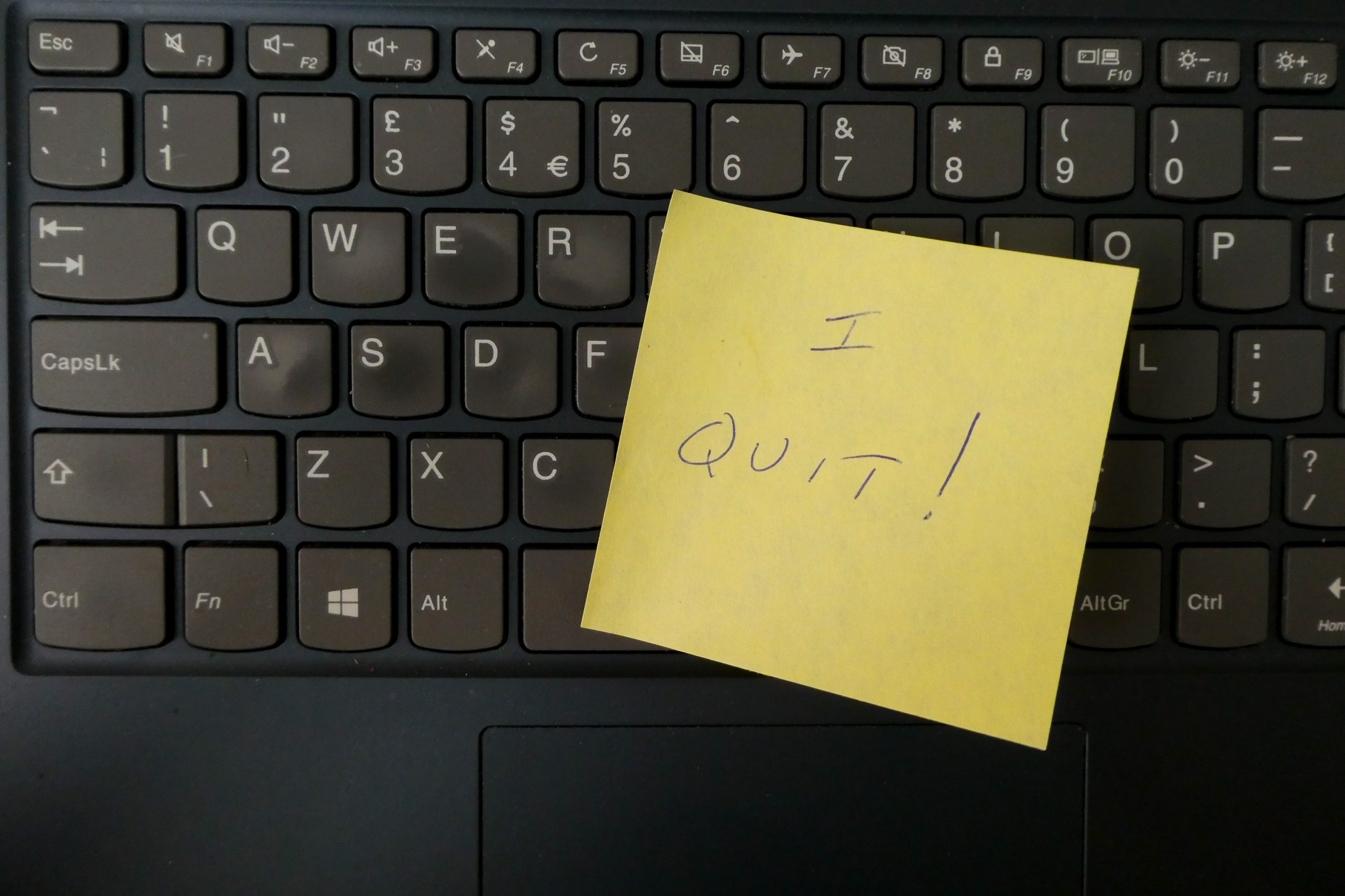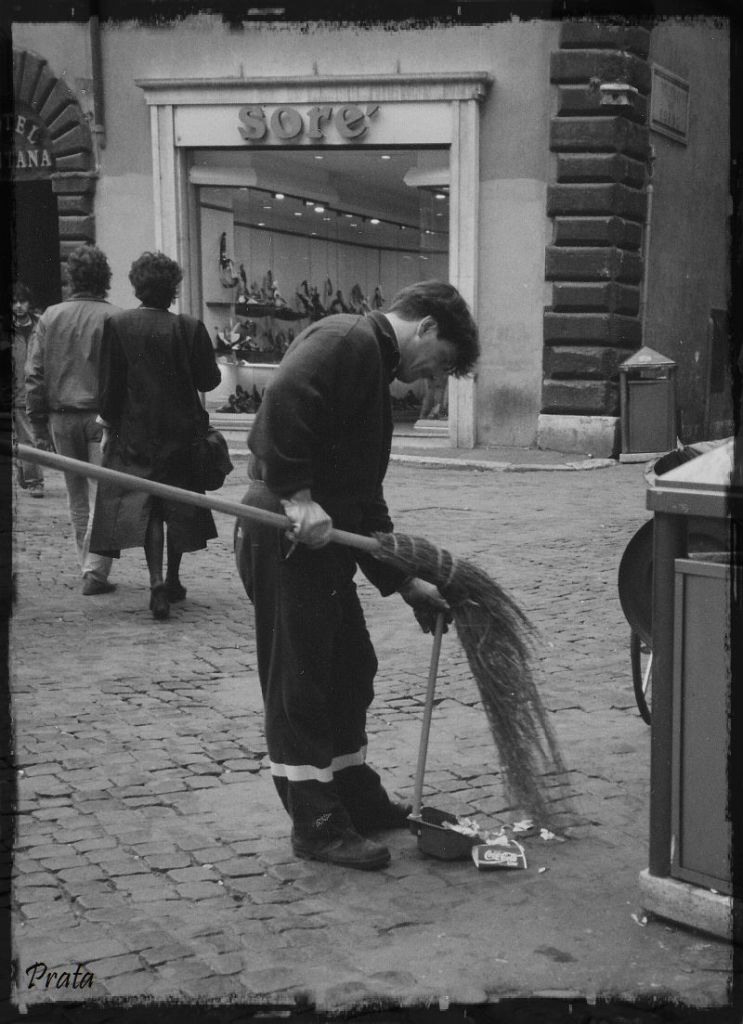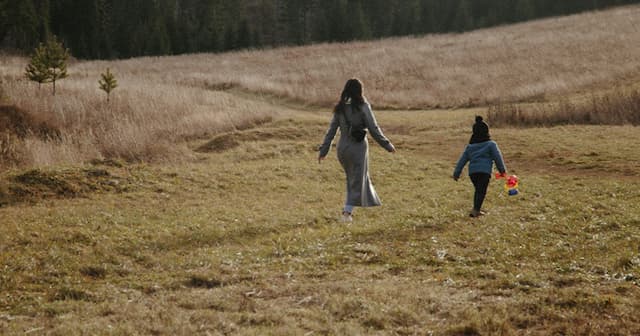The Great Resignation, or, The Great Laziness

By Elizabeth Prata
Business Insider (BI) came out with an article that reported that millennials are quitting their jobs in huge numbers. Many of them do not have another job lined up. And, according to people who track these things, they haven’t gotten another job yet months after quitting. BI called it “The Great Resignation.“

BI reported that the retirement age of 62 has become more and more popular, as fewer and fewer people expect to work beyond that age. The minimum age one can draw Social Security is 62. I know, because I called the Social Security Administration on Friday and asked about my own account. I’ll be 61 in a couple of months. If I even want to think about retiring I’ll have to wait a year. But I won’t be able to do it even at age 62, not enough in the kitty, but I do think about it. I think about it and I have a job I love, never mind a stressful job or a physical job or a job with terrible bosses etc. I’m sure lots of other people are thinking about it as well. Charles Johnson on Twitter summed up reasons he personally is hearing why people are thinking along these lines:
Dominant reasons I’m hearing: 1) mandatory CRT/I training 2) vaccine mandate 3) homeschooling 4) tired of seeing people paid to stay home while they work their rear ends off 5) early retirement for all of the above. Neo-socialists are causing the whole mess right now…
At school, we can’t get substitutes. Farmers can’t get workers into the barn. Restaurants can’t get wait staff. Almost every industry is reporting a shortage of workers. Law Enforcement particularly is feeling the pinch, with great swathes of officers putting in their retirement papers.
But apart from people legitimately at retirement age considering making the jump out of the work-force, is the issue of young people who won’t work. Some organizations report that it’s not because people are lazy, it’s that they are just “reprioritizing.” Hmmm. Okay… They say that the pandemic made them rethink their values and how they want to organize their life. Some of the top five reasons people are leaving their jobs, and 4 million quit this past April (WUT!), are that they aren’t making enough money (hello, we have received multiple pandemic stimulus monies in the last 18 months), that the job isn’t interesting enough, (self) that their job won’t let them work from home or remotely (self), or work is just so hard it interferes with or leaves little energy for leisure pursuits. (self)
Notice that these reasons are self-centered. In the past, people found satisfaction being part of a team, or they had pride in manufacturing a necessary item for the nation, or that they felt fulfilled being the bacon-bringer of the household, etc. These reasons in the past were enough. And were not centered on self.
According to the U.S. Department of Labor, during the months of April, May, and June 2021, a total of 11.5 million workers quit their jobs.
As I was mulling these news items and these interesting facts, I came across this snippet from long ago. I was researching the Art Deco designer Arthur Frankenberg of New York City, who made notable ash trays, vases, lamps and other figurines at the height of the Deco movement in the 1920s and 1930s. This reminiscence comes from a man who was seeking a job and eventually got one at Frankenberg’s plant. He went looking for one in the neighborhood and he describes the scene-
A Little History on Frankart, Inc.
by Henry Underberg
The following article was provided by Neil Underberg, son of Henry Underberg. Henry Underberg was Vice President and General Manager of Frankart, Inc from 1922 to 1932 and died in 1992 at the age of 94.
My first job was with the Metal and Export Company of America on 59 Pearl Street in downtown New York City. I was an assistant to the traffic manager, a man by the name of Newman. I want to mention something about my summer vacations. Because we needed the money pretty badly, my summers were never a vacation! I had to look for jobs during my High School days. And among the many jobs I had was one with a firm called Freeman Brothers who were wholesale hatters.
They had a loft on Broadway and about West 4th Street and their loft was on street level and ran all the way back from Broadway to Mercer Street. I was going by the store one day when I saw a lineup of boys in front of the place and outside there was a sign which said, “Boy Wanted.” So I got on the end of the line and, believe it or not, they finally reached me. And I must have made an impression on them because they decided to take me. So I got myself a job and I think the salary was either four and a half or five dollars a week.
At any rate, after I was told I had the job they said to please go outside and take down the “Boy Wanted” sign. Well, I went outside to take down the sign and was almost mobbed by a hundred other kids who wanted to kill me because I got the job. That was an experience I have never forgotten.
I wouldn’t forget it, either! According to the dates given, this would have been around 1915 or so. How much has changed in 100 years! People would practically mob you if you DO seek a job! I see help wanted signs everywhere today.
What does the Bible say about work and the Christian? What kind of work ethic are we supposed to have? Well, firstly, we are supposed to work if we can.
For even when we were with you, we used to give you this order: if anyone is not willing to work, then he is not to eat, either. (2 Thessalonians 3:10).
Seems clear enough. Barnes’ Notes says,
It would seem from this that the evil of which the apostle here complains had begun to operate even when he was with them. There were those who were disposed to be idle, and who needed the solemn command of an apostle to induce them to labor.
Work is not part of the curse that happened after the fall. Sure, toil got harder, but God instituted a command to work before the fall. (Genesis 2:15).
These folks that Paul had report of who were not working didn’t seem to have the issue of drunkenness or gluttony, just idleness. This is not OK. Matthew Henry and other commenters on the Bible seem to think that the Thessalonians’ idleness was because after Paul taught them the last things doctrines about the soon coming of Christ, some believers took it too literally and would not work so they could lay around and wait for His appearing. No, no, no. That’s not how it works, Paul admonished in the next verse (1 Thessalonians 4:11).
Not working brings other issues, including idleness which further tempts to being a busybody. God requires us to work if we can. There are many Proverbs about laziness, sluggards, and what happens to those who won’t work.
We work so that we may be of value to our company or our State, that we can supply our own wants and be self-sustaining, and so we may be able to provide for the poor. Ephesians 4:28 says we should work. Our work should be an opportunity to display peace in Christ and our good witness unto Him, as we serve our earthly overlords but also ultimately Christ as Lord.
That we need to work is evident. But how should we be at work? Our ethic should be that we are diligent, not pilfering but displaying trustworthiness. (Titus 2:10). Not just working for eye-service but having a good work ethic even when no one is watching. (Ephesians 6:6; Colossians 3:22).
I liked this book: Work & Our Labor for the Lord by James Hamilton. The author “explores how work fits into the big story of the Bible, revealing the glory that God intended when he gave man work to do, the ruin that came as a result of the fall, and the redemption yet to come, offering hope for flourishing in the midst of fallen futility.”
Our work may be menial, but it’s important It is part of an overall fabric of witness for Christ. In your own obscure corner of the world, what you do every day might not seem like it’s making a difference, but it is. Even if your colleagues, your boss, or anyone else doesn’t think so, we work because we must (if we can), because we want to sustain ourselves and be able to give to the poor, and to please our Lord, who is the One who gave us the job of being diligent while on earth.
FURTHER RESOURCES
The disciples fished on and off throughout their years with Jesus






